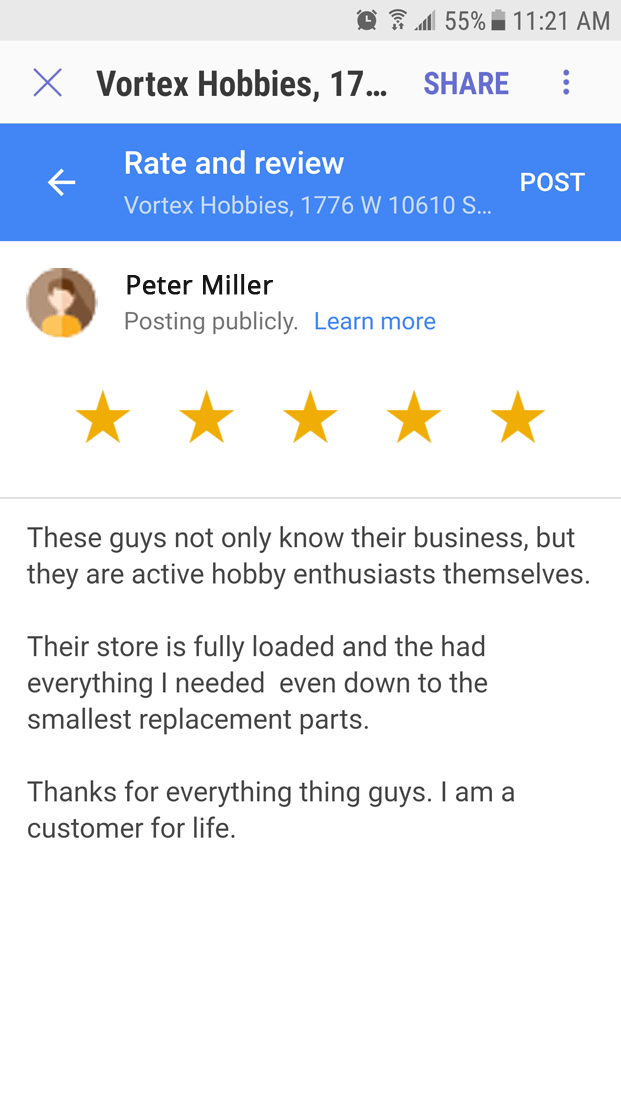Asking For A Review Is Easy!



This Is What Your Customer Receives



Half Of All Millennial's "Always" Read Online Reviews For Businesses
Younger individuals know the value of being informed. User-generated material has an indisputable effect on customers.
If businesses think of the power of client reviews over millennials, they will realize what they've been missing out on. Older individuals are different though, only 6% of individuals aged 55 or older read reviews.
Source: Brightlocal
Favorable Reviews Motivate 68% Of Customers To Use A Local Business
Since the large majority of consumers read reviews, you would want yours to be appealing to brand-new customers, right? Keep them short, positive and sweet.
"Kind words can be short and easy to speak, but their echos are truly endless." -Mother Teresa
Source: Brightlocal
Google Accounts For 57.5 Percent Of All Reviews Worldwide
As can be anticipated, Google is in the lead, followed by Facebook, TripAdvisor and others.
Here are the online reviews distribution rankings:
Google with 57.5%, Facebook with 19%, TripAdvisor at 8.4%, Yelp with 6.6% and Others with 8.6%.
Source: Review Trackers
A One Star Boost In Rating Can Lead To A 5% To 9% Increase In Business Income
Businesses that treat customers honorably usually flourish, review websites help ensure of that.
Source: Statuslabs
The Average Review Length Has Gotten 65% Shorter Since 2010
As of late reviews are shorter, easier, and more straight to the point. The word count of a review in 2019 is similar to that of a twitter tweet.
Source: Review Trackers
15 Percent Of Users Do Not Trust Businesses Without Having Online Reviews
No trust suggests no interactions. 15 percent of potential customers won't even think about doing business with a company they can't discover viewpoints about.
Source: Statuslabs
77% Of Clients Don't Rely On Reviews That Are Older Than Three Months
Clients don't care how good your service or product was in the past. Part of why online reviews matter is because they are relevant and fresh.
Consumers understand businesses lose their touch all the time, which is why most of them regard older reviews unimportant.
It is for this reason that companies ought to be constantly requesting reviews.
Source: Statuslabs
82 Percent Of Customers Check Out Review Sites Since They Wish To Purchase A Service Or A Product And Want To Get The Facts About Business Services And Products.
Users come due to the fact that they have currently formed a buying decision. The majority of them (89%) buy within a week of their visit.
Source: RevLocal
Customer Reviews On Items Are Relied On Practically 12 Times More Than The Makers' Descriptions
Word-of-mouth reviews are miles ahead of the makers' description. People trust other peoples viewpoints before they ever trust what the producer says. The reason, manufacturers' descriptions are essentially advertisements.
Source: Martech Zone
71% Of Millennials Search Consumer Reviews Of Professional Services
Majority of all people in need of an expert service rely on online reviews.
According to online reviews stats, 59% used online reviews to choose a legal representative or a physician.
Younger people (age 18-35) are a lot more inclined to hire an expert based upon online reviews. Only 19% of millennials will consider hiring a lawyer without any.
Source: Thomson Reuters
70 Percent Of Customers Need To Check Out A Minimum Of 4 Reviews Before They Can Trust A Business
Four reviews may be too few. Most people check out many more reviews to get a clear view of how the business is actually doing. Don't depend on that statistic alone.
Source: Brightlocal
Many Best Selling Items Have A Typical Ranking Of 4.2 To 4.7
You can't make everyone happy, which is why perfect 5 star scores are suspicious. Someone always has a little a gripe. That's why it is unnatural to get perfect 5 star rankings. Sometimes a lower score in fact helps your overall rating.
According to consumer rating statistics, conversion rates begin to decrease as scores rise above 4.7.
Source: Spiegel Research Center
444 School Dr
Weaver, AL 36277